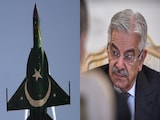In a rare example of how urban public transport can directly contribute to saving a life, Bengaluru's Namma Metro helped deliver a donor heart across the city in just 25 minutes, cutting through the kind of peak-evening congestion that typically brings the city to a standstill. The heart, destined for Narayana Health City, was transported under medical supervision from Ragigudda Metro Station on the Yellow Line to Bommasandra, covering nearly 20 kilometres in record time. According to the hospital, the rapid transfer ensured that the transplant team received the organ well within the critical preservation window-an essential requirement for heart transplantation.
Globally, timely organ transport is one of the biggest determinants of transplant success. The World Health Organization (WHO) notes that the viability of donor hearts sharply declines with prolonged cold ischemia time; typically, surgeons prefer to transplant a donor heart within four hours of retrieval. Any delay caused by traffic, logistics or weather can significantly compromise the organ's function and reduce the recipient's survival rate.
In major metros like Bengaluru, where traffic delays are common, alternative transport corridors-including metros, dedicated green corridors and air ambulances-have increasingly become part of India's emergency organ-transport system. This latest mission highlights how infrastructure, coordination and public support can together make lifesaving procedures possible.
A 25-minute metro ride that beat Bengaluru traffic
According to Narayana Health's press note, the transplant team boarded the Yellow Line at 7:32 PM from Ragigudda Metro Station and reached Bommasandra at 7:55 PM, completing the journey in just 25 minutes, a fraction of what road travel would have required during evening rush hour.
The Bengaluru Metro Rail Corporation Limited (BMRCL) ensured seamless movement by coordinating with station staff, security teams and train operators. The swift response enabled the organ to bypass road congestion entirely, ensuring it reached the hospital campus promptly for surgery.
Why every minute matters in heart transplantation
A donor heart remains viable for a limited window, what transplant teams call cold ischemia time.
Most guidelines, including those of UNOS (United Network for Organ Sharing) and NHS Organ Donation, note that hearts are ideally transplanted within 4 hours of retrieval.
Beyond this, the risk of primary graft dysfunction rises significantly, reducing the recipient's long-term survival.
Narayana Health reiterated this in its note: "Timely transportation is crucial in cardiac transplantation, where every minute greatly influences the viability of the organ and the success of the procedure."
Photo Credit: Narayana Health City
India's growing reliance on alternative organ-transport corridors
India has developed sophisticated "green corridors", special traffic-controlled routes, to move organs quickly. However, in cities with unpredictable traffic patterns, metros have increasingly become a reliable alternative. In the past decade, metros in Chennai, Mumbai, Hyderabad and Delhi have supported similar missions by providing uninterrupted, congestion-free routes.
Such efforts align with recommendations from India's NOTTO (National Organ and Tissue Transplant Organisation), which emphasises coordinated, multi-agency logistics to minimise transport delays for highly time-sensitive organs like hearts and lungs.
The unseen heroes: Donor families
The hospital's note also expressed gratitude to the donor family for making the life-affirming decision to donate organs at a time of immense grief. It read: "Their act of compassion has given another individual a renewed chance at life."
WHO and NOTTO both highlight that increased public awareness and family willingness play the biggest role in expanding India's organ donation rates.
The Bengaluru metro's 25-minute organ transfer is more than a story of efficiency, it is a powerful reminder of how coordinated public infrastructure can save lives. As organ transplantation grows in India, strengthening such rapid-response systems is essential. With timely medical action, advanced planning, and the generosity of donor families, moments like these become possible. And for one recipient at Narayana Health City, a metro ride meant the difference between life and loss.
Disclaimer: This content including advice provides generic information only. It is in no way a substitute for a qualified medical opinion. Always consult a specialist or your own doctor for more information. NDTV does not claim responsibility for this information.















